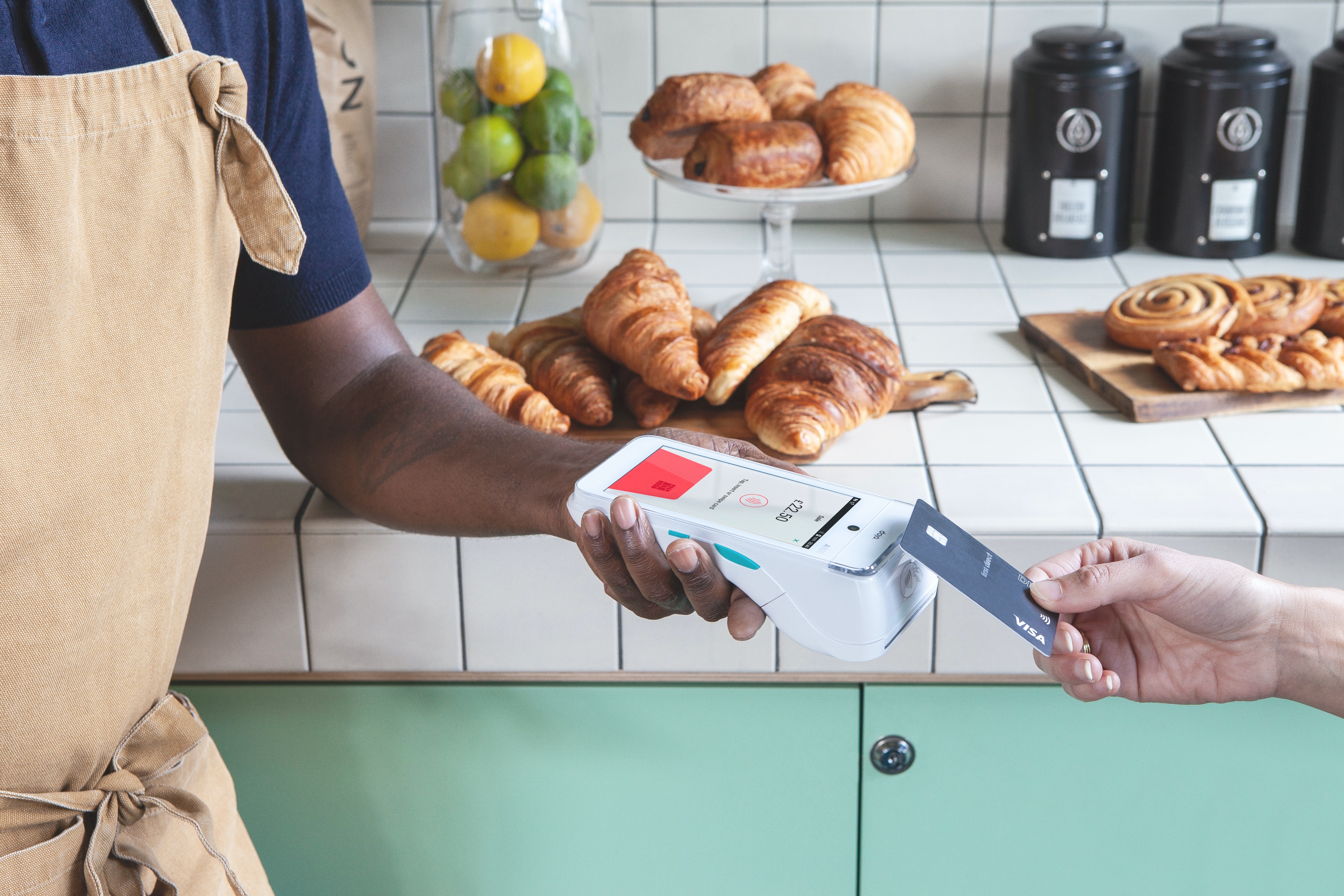
Mechant accounts: A complete guide.
The need to know on merchant processing and merchant accounts.
The need to know on merchant processing and merchant accounts.
If you’re looking to accept credit and debit card payments at your small business or enterprise, you’ll need to open a merchant account.
At Dojo, we'll provide this for you for free when you sign up for any card machine. But what exactly is a merchant account and why do you need one?
We've pulled together the need-to-knows in our comprehensive guide.
A merchant account is a name for an account held with an acquiring bank or merchant acquirer (that's us) that business owners need in order to accept card payments from their customers.
Business accounts and merchant accounts are often confused with one another, but they serve very different purposes. A business bank account is similar to a personal bank account, but for all of your business finances and savings.
A merchant account is not an actual bank account, as no money is kept there. It's just an account you hold specifically to accept card payments from customers.
A business owner cannot get paid into their business bank account with credit or debit cards unless they also hold a merchant account. This makes merchant accounts an essential part of merchant processing in both face-to-face payments and ecommerce.
Before you open a merchant account, you’ll need to understand some essential information about your business so you get the most suitable solution.
The most popular cards used globally are Visa and Mastercard, but you may want to allow your customers to use American Express, Discover or Diners, which will come at a small additional cost.
Whether it’s just in-store payments with your card machine, or you’re accepting card payments over the phone, online or via email with a virtual terminal, this may affect the rates you pay.
Card turnover is the amount of money you expect to take on debit and credit cards. This may impact the rates that you will pay with your merchant account provider.
Now you know the details about your own business, it’s time to understand what merchants accounts can offer you and the questions you’ll need to ask.
Merchant fees are also known as card processing fees as they are the costs associated with processing credit and debit cards.
These are the rates you’ll be charged to process cards from your customers. They can vary depending on the card’s issuing bank (e.g. Barclays, Lloyds) and the scheme holder (e.g. Visa, Mastercard, Amex).
This fee is set by the card scheme (e.g. Visa, Mastercard) and is not set by your merchant acquirer. These fees can change annually, but they typically range between 0.2% and 0.3%.
A card processor needs to authorise a card transaction with the issuing bank which will cost a marginal fee. The typical range is between 1p-3p.
As well as your standard transaction fees, there could be other potential fees that show up on your account. These can often be related to the risk level of the card transaction.
For example, if a card holder is not present (CNP) when you make the payment over the phone (by typing their details into your card machine) you'll be charged a higher fee.
As the cardholder is not with you, there is no way to tell if they are the owner of the card by making them enter their chip and PIN number, so the risk of fraud increases fractionally.
There are ways to mitigate fraud with CNP, by asking the cardholder to confirm their address registered with their debit or credit card.
If you’re taking card payments over the phone without using a virtual terminal or payment gateway, this adds a security risk that you could be charged for.
Depending on the merchant account you've agreed to, if you accept a transaction with a card issuer (e.g. Amex) without agreeing to those terms beforehand, you may incur additional merchant account fees.
Merchant chargebacks happen if a customer disputes the card payment with their bank. This can happen for a few reasons but the most common are because the cardholder thinks it was fraudulent, or because they didn't receive the item or service they were charged for.
Set up by the Payment Card Industry Data Security Standard, PCI compliance protects your customers from fraud. If you are not compliant or can’t show you are, your merchant acquirer could fine you with extra fees.
With Dojo, becoming PCI compliant is simple and you can do it straight from the free Dojo app by answering two simple questions.
Depending on your card processing provider, you’ll be charged different rates for different things. But, there are usually four popular pricing models which merchant providers can use to set their rates for their customer base.
Rather than put businesses into boxes, Dojo commits to tailored rates – also known as blended pricing. This means you'll get a deal that works for you, rather than a generic rate.
This is where a merchant account provider charges either a flat rate fee for every transaction, or a fixed percentage of that transaction amount. Sometimes it can even be a mixture of both.
An interchange is the term referred to the cost that the card schemes (Visa, Mastercard, Diners etc.) pay and therefore charge for processing a card transaction.
Some merchant providers will use this model for their pricing, marking it up slightly. As the interchange cost is not set by the merchant processor, but the schemes themselves, these rates are not likely to stay the same year on year.
Tiered pricing buckets transaction types together based on specific factors, such as whether they are Qualified, Mid-Qualified or Non-Qualified. The pricing will reflect the category they are in.
These occur when the cardholder uses a standard debit or credit card and is either present or passes the necessary security checks. These will have the lowest fee as they present the lowest security risks.
These are typically when the cardholder’s card number is typed into the machine, rather than using chip and PIN or contactless.
Alternatively, it could be when a customer is using a business or rewards card rather than a standard debit or credit card. The cost to process these will be slightly higher than Qualified payments using the tiered system.
These are payments that have the greatest security risk.
These could include payments from unfamiliar credit or debit cards, transactions that have missing or incomplete information. Or, if the card-holder is not present and the merchant needs to key in information into the card machine.
Under this pricing model, these will have the highest processing fees, as they can cost the card processor more in interchange fees.
Blended pricing uses a customised rate for the business owner, based on a number of different factors such as the type of cards being used.
At Dojo, we know that a hair salon is different from a restaurant, which is different from a butcher – and they’ll all have different needs.
That’s why we use blended pricing to offer each business a tailored rate, which matches their customer base. That way we can offer complete flexibility and competitive rates with your business specifically in mind.
You may only have one trading business name, and one business account, however, you may have a number of different shops and also an ecommerce business. Will you need a different merchant account for each of these?
With Dojo, the simple answer is no. You’ll only need to open one merchant account with us, however, we will allocate you different locator IDs under this account, for each different location you trade in.
More and more people across the UK are using cards as their preferred method of payment. In fact, from February 2019-February 2020 almost 66 million cards were issued in the UK alone. Whether you’re a small independent baker, to a local taxi driver or coffee shop, don’t let cash be your limit.
Accept more customers by accepting cards with Dojo cutting-edge card machines.
To find out more about merchant services and card processing, visit our in-depth guide.
Accepting card payments should be effortless, something you don't even have to think about. That's why with Dojo you get more than just a card machine.
We're dedicated to the full experience – making your life as a business owner, that touch easier. From next-working-day transfers that free up cash flow, to an intuitive app that makes business reporting less brain-numbing, join Dojo today.


